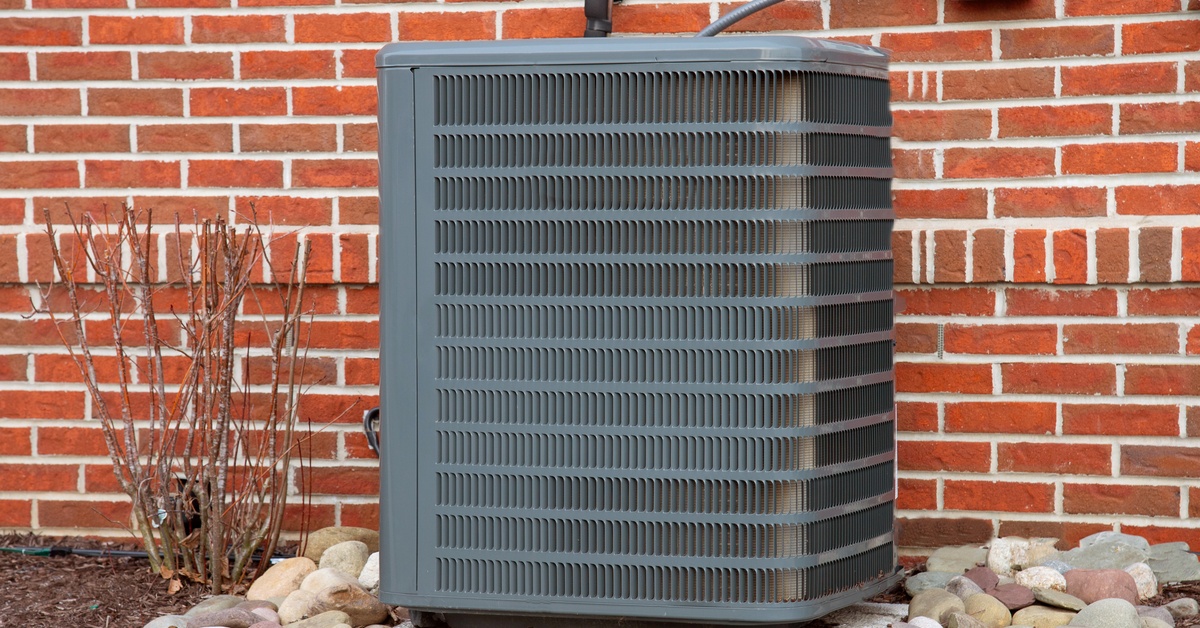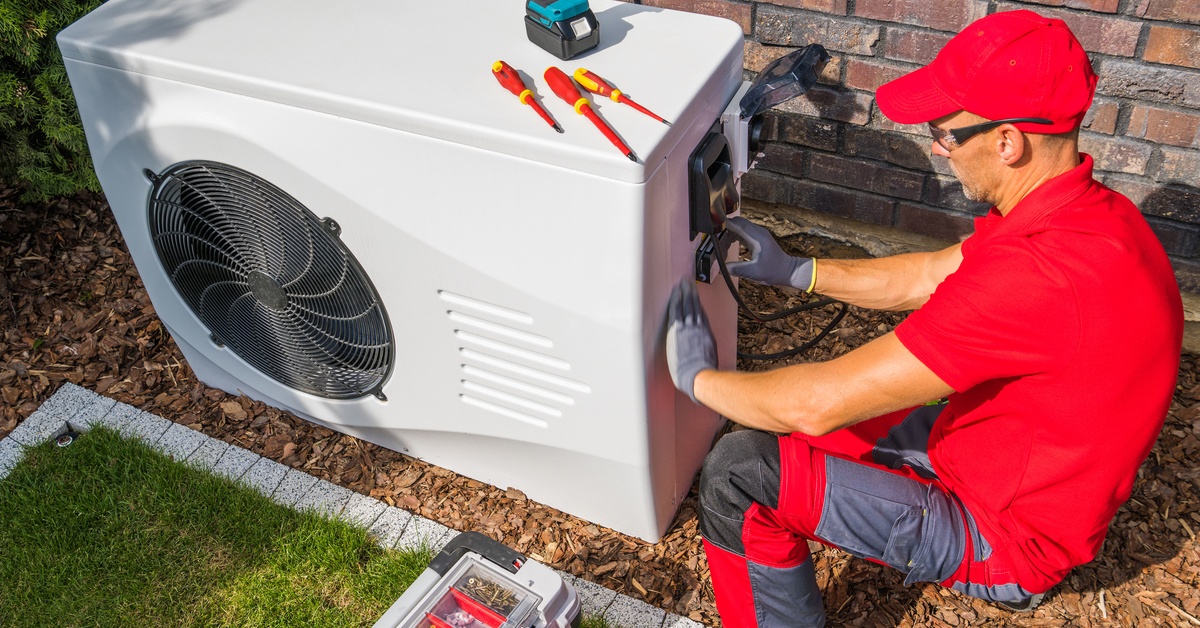
After months of inactivity, your air conditioner may release unexpected odors—dusty, musty, sulfur-like, or even burning—when you first turn it on. While many of these odors are harmless, some indicate issues that require immediate attention. Recognizing the difference protects indoor air quality and allows timely action to maintain system performance.
This AC smell guide explains what’s normal, what’s not, and when to get help. Following these guidelines can prevent further damage, maintain air quality, and preserve system performance.
What’s Normal: AC Smells You Can Usually Ignore
You expect your air conditioner to produce cool, clean air, so any unexpected odor can raise concern. However, many smells occur simply because the system has been idle, and they don’t indicate a malfunction.
A Dusty Smell
Caused by dust that settles in ducts and on filters while the system sits unused, a faint dusty odor may appear at the start of the cooling season. As air begins to flow, it carries the accumulated dust into your living spaces, producing the familiar “old house” smell.
Typically, dusty smells disappear within 15 to 30 minutes of operation. If it persists, you’re likely dealing with clogged or dirty filters. Replacing the filter removes accumulated dust and restores proper airflow.
Pro Tip
Regular filter changes every one to three months reduce the occurrence of these odors. If you have pets or live in a dusty environment, you’ll benefit from more frequent replacements.
Metallic Smell
A slight metallic odor arises from the natural expansion of metal components as they warm during operation. This most often occurs at the beginning of the season and typically disappears after a few minutes.
If the metallic smell persists or grows stronger, it may indicate overheating of the motor or electrical components. If you notice this behavior, you’ll need to schedule an inspection by a licensed technician.

What’s Not Normal: Smells That Indicate a Problem
Some odors are red flags that signify that your system requires attention. They may signal mold growth, electrical issues, or chemical leaks. Recognizing these signs early helps you protect your home, prevent health risks, and avoid costly repairs.
Musty or Moldy Smell
A musty odor usually signals moisture accumulation within your system, often in the drain pan, drain line, or ducts. Mold and mildew thrive in damp, dark areas. When air passes through contaminated spaces, it distributes mold spores throughout your home.
If you notice the smell, a careful visual check of vents and coils may help you identify mold buildup. Often, gently clearing the drain line and replacing wet or clogged filters reduces the odor. You should also call a professional for duct or coil cleaning, as they have the tools and expertise to inspect all areas of the unit.
Rotten-Egg or Sulfur Smell
A rotten-egg or sulfur-like odor signals a potentially dangerous situation. Gas companies add sulfur compounds to natural gas to help homeowners detect leaks. Exposure to gas poses immediate hazards due to its flammability, explosion risk, and potential for suffocation in enclosed spaces. Inhaling high concentrations of natural gas can lead to unconsciousness or even death if not addressed quickly.
If you notice this type of odor, turn off the air conditioner and evacuate the area immediately. Avoid using electronics or light switches. In some cases, bacterial contamination in standing water produces a similar smell, which requires professional cleaning to prevent exposure to harmful compounds.
Burning or Electrical Smell
A burning smell often signals overheating components, such as the motor, fan belt, or wiring. It may indicate an electrical short, which presents a serious fire hazard. If you notice a burning smell, shut off your air conditioner immediately; ignoring this warning sign may result in system failure or property damage. A licensed technician can safely inspect motors, wiring, and other electrical components.
Chemical or Solvent Smell
Chemical odors resembling the smell of acetone or paint thinner may indicate a refrigerant leak. Refrigerants are essential for cooling air, but exposure to them can affect your health, causing dizziness, nausea, or respiratory irritation. A leak also prevents the air conditioner from cooling properly and reduces system performance.
If you detect this smell, turn off the system and ventilate the space immediately. Handling refrigerants requires specialized training, so contact a certified professional, who will be able to locate leaks, repair components, and safely recharge the system.
Fishy Smell
A fishy odor results from bacterial growth in stagnant water within the drain pan or evaporator coil. This growth affects air quality and may cause illness in your household.
Cleaning the drain pan, flushing the drain line, and replacing the filter often eliminates the odor. If the smell persists, you’ll need professional coil or duct cleaning.
When To Get Help

Understanding which AC smells are usual versus abnormal helps you know when to get help. Plus, they often come along with other signs; odors alone don’t always tell the whole story. Observing when smells appear and noting other changes in your system’s behavior provide important clues about underlying problems. Below, we’ve detailed some patterns to watch for.
The Smell Appears Right When You Turn On the AC
An immediate odor upon start-up could indicate a problem inside the system, such as mold on the coils, a dirty filter, or motor issues. Start by checking and replacing the filter. If the odor persists, contact an AC repair companyfor an in-depth inspection.
The Smell Persists or Gets Stronger Over Time
A faint odor that becomes stronger often indicates that an underlying problem is worsening. For example, mold growth may spread from a concentrated area throughout the house via the ducts.
The Smell Comes With Other Symptoms
When odors appear alongside reduced cooling, water leaks, unusual noises, or frequent shutdowns, they often signal serious mechanical or electrical problems. Observing multiple symptoms together indicates that the system may be failing. Prompt professional attention can prevent complete breakdowns and higher repair costs.
Preventing AC Smells
Recognizing warning smells, observing behavior patterns, and performing preventive maintenance keep your system safe, functional, and efficient. Here are some specific maintenance tips:
- Clean the drain line annually. A mixture of vinegar and water effectively removes buildup.
- Inspect and clean the drain pan to prevent standing water.
- Schedule yearly professional maintenance to evaluate coils, refrigerant levels, and airflow.
- Monitor your system throughout the season for unusual odors, sounds, or leaks. Early detection reduces repair costs and maintains air quality.
Contact Us
At Style Crest, your comfort is our pledge, and we have over 50 years of experience in serving homes. Our certified experts are here to keep your home comfortable year-round. Whether your AC is experiencing a strange smell or a heating emergency, or if you just need routine maintenance, call us today for same-day service and experience 100 percent satisfaction guaranteed!